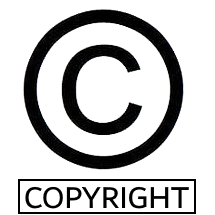Tretinoin vs Retinol – What’s the Difference?
Table of Contents
Buy Tretinoin Cream Online
Tretinoin and Retinol are not new to anyone looking for dermatological interventions to treat acne and wrinkles. But the question that arises in everyone’s mind who is deep into the skincare journey is “are the two substances the same?” Is there any difference between the two and which one is best for me? Before going into detail, one point needs to be cleared.
Tretinoin is sometimes referred to as its popular brand, Retin-A which is sometimes confused with retinol. This is made more complicated by the fact that both tretinoin and retinol belong to the same class of vitamin- A derivatives, retinoids.
Now, when the basic things are clear, let’s clear up what the two substances actually are.
What are Retinoids?
Retinoids are naturally occurring skincare topical products, that tretinoin and retinol belong to. Derived from vitamin A, retinoids are a broad category of amazing skincare products that have miraculous benefits for the skin. Retinol and all other retinoid speeds up skin cell turnover, stimulate the growth of new healthy skin cells, treat hyperpigmentation, and reduce the appearance of fine lines and wrinkles. It would be no loss to buy tretinoin cream online or a retinol formulation for your skin.
So, what’s the Difference?
Following are the things that make tretinoin and retinol different from each other.
Strength and Concentration: Concentration and potency make all the difference. Tretinoin is a purely concentrated formulation of retinoic acid. Tretinoin (retinoic acid) is 20 times more potent than retinol and shows immediate results (1). In contrast, Retinol is a less aggressive substance than tretinoin.
Retinol is only converted to retinoic acid after being applied and gradually absorbed by the skin. It means, it’s a precursor to tretinoin. So, tretinoin is extremely useful for treating acne and wrinkles in a much faster way than retinol. However, due to immediate action, it may cause redness, rashes, and irritation in those with sensitive skin, at least initially.
Retinol users may notice the visible results after some time, but they don’t have to deal with these side effects. In fact, they skip them all and reap all the good only.
Prescription vs. OTC: Tretinoin is available only on the prescription of a registered medical practitioner or a dermatologist. Tretinoin’s potency is the reason it is not sold over the counter. Retinol, in contrast, is an over-the-counter topical formulation and anyone can purchase it from the local store without a prescription.
Mechanism of Action: Both the retinol and tretinoin work as exfoliators, removing the dead skin cells and replacing them with new healthier ones. They also stimulate collagen and elastin production in the skin, giving it a youthful appearance. The main difference is in their onset of action. Studies have shown a significant improvement of fine lines and wrinkles after just one month of tretinoin use, while the same level of improvement takes an average of 3 months for retinol (2). So both work on the same machine and you can expect the same results but tretinoin shows faster results.
FDA Approval: Tretinoin is the only FDA- approved retinoid for photoaging while retinol is not approved for this purpose because it is considered cosmetics.
Which One Should I Go For?
Although both the tretinoin and retinol are used to create the peeling effect, your dermatologist will help you decide which one you should opt for. Discuss with your dermatologists about your skin type and get the best-suited formula for your skin.
Whatever you choose for yourself is dependent upon the outcomes you want. Both have benefits and drawbacks. If you want to give your skin a healthy boost and enable it to fight the signs of aging and don’t have serious skin problems, then retinol is the best choice for you.
Retinol comes in various forms. So it’s possible that you won’t find retinol written on the ingredient list of an anti-aging cream. But you may find a form of retinol used in that particular product like retinal, retinyl palmitate, retinyl acetate, retinyl linoleate. The higher in the ingredient list it is, the more retinol that product has. If it’s listed dead last, it doesn’t contain much retinol and probably won’t be very effective.
Retinol is usually the ideal option for people with dry or sensitive skin. However, for people with skin problems that require innovative and advanced options, tretinoin will work better. For skin problems like acne, fine lines and wrinkles, blackheads, hyperpigmentation, tretinoin will give you more bang for your buck (3). This means going to the dermatologist for a prescription, but in the end, you will get more dramatic results with a prescription retinoid than you will with an OTC version.
If your goal is to reduce the effects of photoaging, using an OTC retinol will be the best option in the beginning. But you will not have any control over the OTC retinol formulation, and it will be difficult to figure out the best concentration that suits your skin. With prescription tretinoin, it will be easy for your dermatologist to figure out the best concentration for your skin.
If you got sensitive skin or have serious skin problems like psoriasis, you can still go for tretinoin. In fact, tretinoin is proved to be an effective treatment for psoriasis (4). It’s important to mention your skin-related concerns clearly to your dermatologist so you can start with the right.
Tretinoin will help you get smooth and healthy skin faster with 20 times potent than retinol. But if you don’t want to start with a potent product, you may start with retinol and then switch to a more powerful formulation.
Don’t go for an either/or decision. Your skin slowly becomes used to retinoids as you use them over time. This does not mean they don’t work as well over time, they do. But the side effects like dryness and peeling decreases gradually over time.
Starting off with an over-the-counter retinoid product can help acclimate your skin to topical retinoids and reduce side effects if and when you eventually bump up to prescription Retinn-A. Buy tretinoin cream online from (mention your company’s name here with a link to the website).
Summary: Retinoids like retinol and tretinoin can definitely be an ideal addition to your skincare regimen. If you need help finding a retinoid product and can’t choose between its different forms, your physician or dermatologist can help you choose one.
References:
- Mukherjee, S., et al. (2006, December). Retinoids in the treatment of skin aging: an overview of clinical efficacy and safety. Retrieved from https://www.ncbi.nlm.nih.gov/pmc/articles/PMC2699641
- Mukherjee, S., et al. (2006, December). Retinoids in the treatment of skin aging: an overview of clinical efficacy and safety. Retrieved from https://www.ncbi.nlm.nih.gov/pmc/articles/PMC2699641/
- Zaenglein AL, Pathy AL, Schlosser BJ, Alikhan A, Baldwin HE, et. al. Guidelines of care for the management of acne vulgaris. Journal of the American Academy of Dermatology. 2016;74(5):945-73. doi:10.1016/j.jaad.2015.12.037
- Kaidbey, K.H., MD, et al. (1975, August). Treatment of Psoriasis With Topically Applied Tretinoin and Steroid Ointment. Retrieved from https://jamanetwork.com/journals/jamadermatology/article-abstract/535164
















